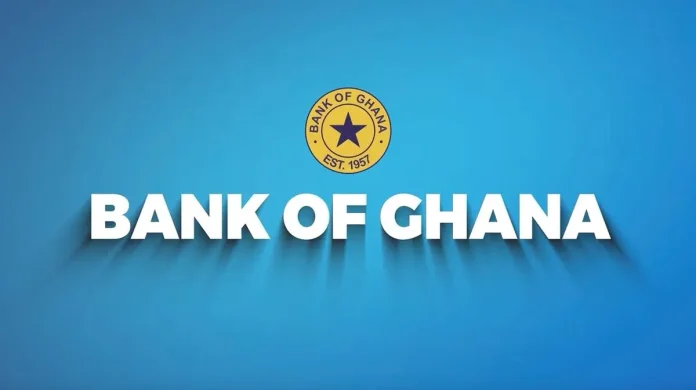The Bank of Ghana is targeting substantial expansion of its foreign exchange reserves through aggressive gold accumulation and improved macroeconomic management, Governor Dr. Johnson Pandit Asiama announced at the 2025 International Monetary Fund Annual Meetings in Washington. The push capitalises on record gold revenues and represents a deliberate shift toward commodity-backed reserve strengthening as part of Ghana’s broader economic stabilisation strategy.
The figures behind this initiative are striking. The Bank of Ghana has accumulated approximately US$8 billion in gold revenues since March 2025, a surge driven primarily by operations of Goldbod, the state-owned Ghana Gold Board established to centralise gold procurement and export. This influx has directly contributed to a marked rise in Ghana’s reserve buffer and marks a turning point in how the nation manages its mineral wealth.
Goldbod’s performance in its first seven months has exceeded expectations. The institution operates as a revolving fund that captures gold exports from both small-scale miners and large mining companies, ensuring foreign currency from sales returns to Ghana’s banking system rather than remaining offshore through informal channels. Dr. Asiama described Goldbod’s contribution as “tremendous,” noting that centralisation of the gold trade addressed a longstanding vulnerability in Ghana’s foreign exchange management.
Prior to Goldbod’s establishment, Ghana’s gold sector operated under a decentralised system where foreign exchange from sales often remained outside the country. Private traders dominated exports, with much of the proceeds bypassing the domestic banking system and national reserves entirely. This meant Ghana, despite being Africa’s leading gold producer, captured only a fraction of the true value of its mineral wealth. The new centralised approach has fundamentally altered this dynamic.
The reserve position has strengthened substantially. Ghana’s import cover ratio has improved to 4.5 months from 3.2 months during the nation’s most acute economic crisis period. This metric measures how many months of imports the country could sustain using current foreign exchange reserves, and the improvement provides cushion against external shocks. International reserves have reached US$10.7 billion equivalent to 4.5 months of import cover, underpinned substantially by gold accumulation.
Gold reserves specifically have expanded dramatically. The Bank of Ghana’s holdings climbed to 37.06 tonnes by the end of September 2025, representing a 21.3 percent increase from 30.53 tonnes at the end of 2024 and a quadrupling since May 2023 when holdings stood at just 8.78 tonnes. This accumulation occurred across shifting global gold markets, with prices surging from around US$2,100 per ounce in early 2024 to beyond US$4,000 per ounce by October 2025.
The Domestic Gold Purchase Programme, which requires large-scale mining companies to sell 20 percent of refined output to the central bank in cedis, has underpinned much of this growth. Initially involving major firms like Gold Fields, Newmont, AngloGold Ashanti, and Asanko Mining, the programme expanded in 2025 to include nine additional companies, further diversifying sources of gold acquisition. Goldbod separately handles purchases from Ghana’s extensive artisanal and small-scale mining sector.
Beyond direct reserve accumulation, gold purchases support currency stability. When mining companies deliver gold to Goldbod in exchange for cedis at a one percent discount to London Bullion Market Association spot prices, the transaction simultaneously strengthens the domestic currency and provides miners a guaranteed domestic market. This structure reduces incentives for informal smuggling that previously diverted gold revenues from Ghana’s official statistics.
Dr. Asiama emphasised that the central bank receives gold bullion directly from large mining firms under existing agreements, further complementing Goldbod’s purchases. This dual procurement channel has enabled Ghana’s reserve position to strengthen substantially whilst simultaneously maintaining flexibility in monetary policy and exchange rate management.
Ghana’s trade position has improved considerably, reflecting both gold price strength and increased volume capture. The country recorded a trade surplus of US$6.2 billion in the first eight months of 2025, whilst gold exports alone reached approximately US$8.3 billion in the first half of the year, exceeding total imports for the same period. For the first time since at least 2016, gold exports outpaced total imports, a remarkable shift that underscores the sector’s significance for Ghana’s external position.
The cedi’s performance has reflected these improvements. The local currency appreciated 21 percent year-to-date as of Dr. Asiama’s announcement, placing it among the world’s best-performing currencies in 2025 and marking a sharp reversal from its depreciation trajectory in 2024.
However, Dr. Asiama cautioned against complacency. He stressed that while inflows continue expanding, the Bank operates within a flexible exchange rate framework that balances market forces with measured intervention. Recent months required “lumpy” payments to bondholders and other creditors that the central bank absorbed without destabilising markets, demonstrating both the value of accumulated reserves and the need for continued discipline.
The Governor highlighted that Ghana’s long-term resilience requires reducing vulnerability from commodity dependence. Plans to increase local processing of gold, oil, and cocoa represent efforts to extract greater value from raw materials before export. Gold refineries approaching operational status will allow local refinement before export, potentially further supporting reserves and national revenue whilst reducing exposure to external price shocks.
The gold accumulation strategy complements Ghana’s ongoing International Monetary Fund programme focused on fiscal consolidation and structural economic reform. Officials maintain that commodity-backed reserve strengthening supports rather than contradicts these broader adjustment efforts, providing an additional layer of protection against external volatility.
Dr. Asiama acknowledged that risks persist and that sustained policy discipline remains essential to maintaining current progress. The central bank will continue monitoring inflows and adjusting reserve management to meet both domestic needs and international payment obligations.
Source: newsghana.com.gh











